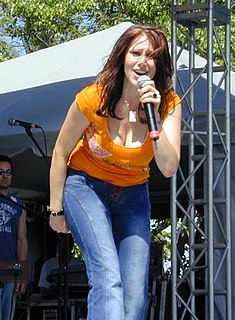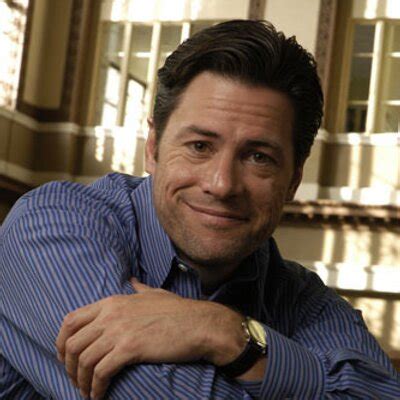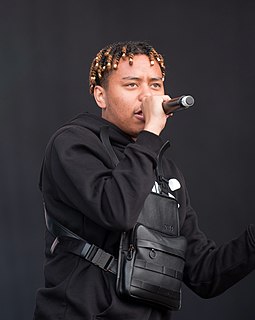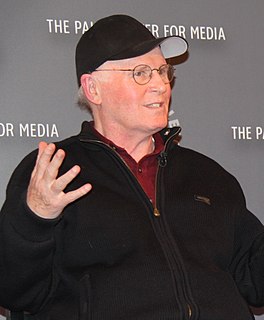A Quote by Julia Cameron
When it was suggested that I write a memoir I said, 'I'm not old enough. I'm not distinguished enough.' But I went home and sat down to write, and the material for the book just came flooding into my hands.
Related Quotes
I've been trying to write a book since before I was old enough to vote, and I've collected many rejection slips from publishers and magazines. I used to keep them all stuck to my refrigerator, with magnets, but an ex-girlfriend told me they were depressing, and defeatist, and suggested I take them down. A very wise suggestion on her part.
I don't know where to start," one [writing student] will wail. Start with your childhood, I tell them. Plug your nose and jump in, and write down all your memories as truthfully as you can. Flannery O' Connor said that anyone who has survived childhood has enough material to write for the rest of his or her life. Maybe your childhood was grim and horrible, but grim and horrible is Okay if it is well done. Don't worry about doing it well yet, though. Just get it down.
Exercise your imagination muscle! How many uses can you come up with for a flowerpot? Write down your answers. But don't write them in this book. Grab a separate sheet of paper. I didn't spend two and a half weeks writing a book just so you could mark up the pages with your silly ideas for things you can do with a flowerpot. When it comes down to it, what's wrong with a flowerpot not being a flowerpot? Why is nothing ever good enough for you?
You have to surrender to your mediocrity, and just write. Because it's hard, really hard, to write even a crappy book. But it's better to write a book that kind of sucks rather than no book at all, as you wait around to magically become Faulkner. No one is going to write your book for you and you can't write anybody's book but your own.
The stories never said why she was wicked. It was enough to be an old woman, enough to be all alone, enough to look strange because you have no teeth. It was enough to be called a witch. If it came to that, the book never gave you the evidence of anything. It talked about "a handsome prince"... was he really, or was it just because he was a prince that people called handsome? As for "a girl who was as beautiful as the day was long"... well, which day? In midwinter it hardly ever got light! The stories don't want you to think, they just wanted you to believe what you were told.
On the return flight from my mother in Florida , I sat next to a businessman who asked me what I did for a living. I said, "I write," and it seemed totally ridiculous in the face of what had just happened. I mean, I couldn't think of anything more pointless than telling stories. He asked, "What do you write?" I said, "I write children books."
In the last volume of In Search of Lost Time, Proust compares himself to Scheherazade: he says he has finally understood the nature of the book he has to write, just at the moment when his advancing years and declining health have made him doubt that he's going to live long enough to write it. So he has to write against death like Scheherazade.
The danger that keeps me just a little frightened with every book I write, however, is that I'll overreach myself once too often and try to write a story that I'm just plain not talented or skilful enough to write. That's the dilemma every storyteller faces. It is painful to fail. But it is far sadder when a storyteller stops wanting to try.
The most common thing I find is very brilliant, acute, young people who want to become writers but they are not writing. You know, they really badly want to write a book but they are not writing it. The only advice I can give them is to just write it, get to the end of it. And, you know, if it's not good enough, write another one.







































